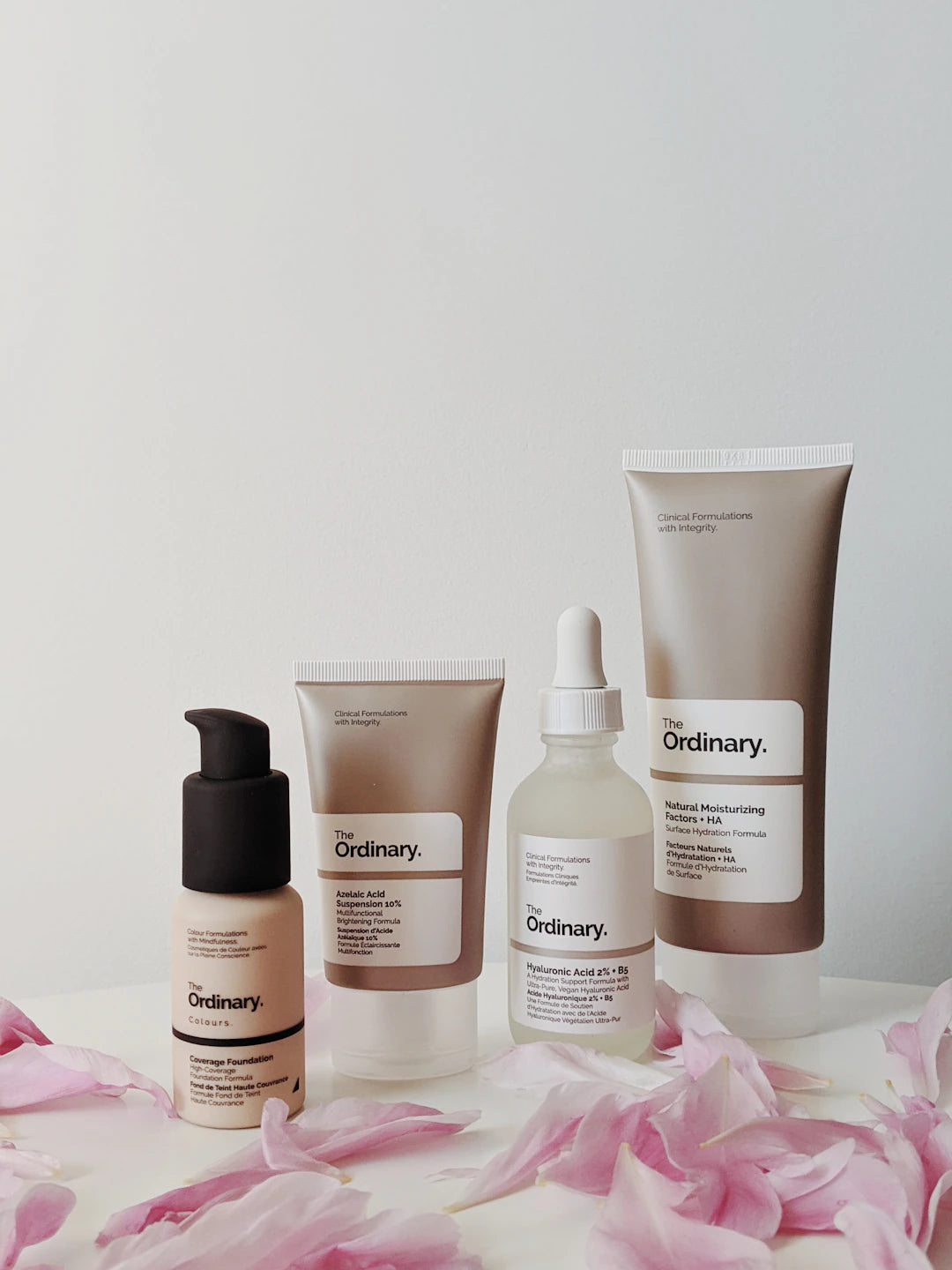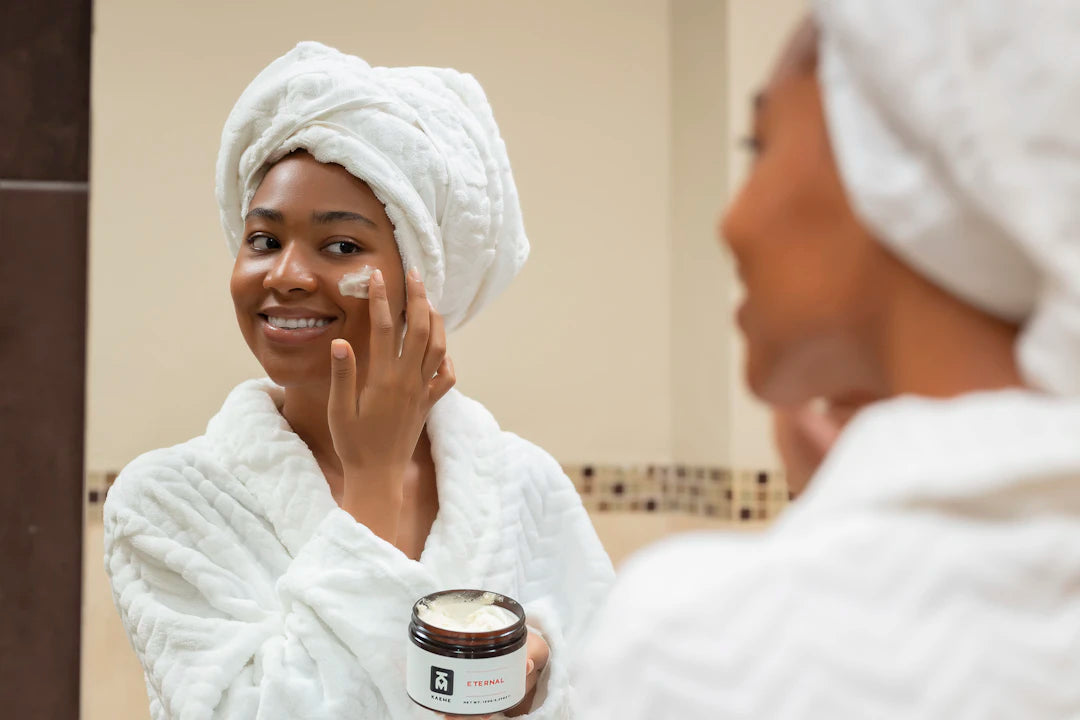The Secret to Glowing Skin: The Role of Sleep in Skin Health

When it comes to achieving healthy, radiant skin, many often gravitate to skincare products and regimens, overlooking a critical factor: sleep. Sleep is not just a time for rest; it plays an integral role in skin health, influencing everything from elasticity to the appearance of wrinkles. In this blog post, we'll explore the connection between sleep and skin health, emphasizing the importance of establishing a proper sleep routine to enhance your overall skincare game.
The Science Behind Sleep and Skin Health
Every night, while we sleep, our bodies embark on an essential journey of repair and recovery. During this time, our skin undergoes crucial regeneration processes that contribute significantly to its overall appearance and health.
Cellular Regeneration
When you sleep, your body produces collagen, a vital protein that keeps skin firm and elastic. Insufficient sleep can lead to reduced collagen production, resulting in a less durable skin structure and increased visibility of fine lines. This is where quality sleep can contribute to anti-wrinkles and skin tightening effects.
Balancing Hormones
Sleep affects hormone production, including those responsible for skin health. During deep sleep, cortisol levels (the stress hormone) decrease, allowing for a more balanced environment for skin repair. Elevated cortisol levels can lead to various skin concerns, from acne to premature aging, making adequate sleep vital in maintaining a clear complexion.
Impact of Sleep on Common Skin Issues
Several skin problems can stem from lack of sleep, highlighting the importance of incorporating it into your daily skin care routine.
Dark Circles and Puffiness
One of the most noticeable effects of inadequate sleep is the emergence of dark circles and puffiness around the eyes. When we are sleep-deprived, blood vessels beneath the skin dilate, leading to the bluish tint known as dark circles. A solid sleep routine can be a game-changer for minimizing this common issue.
Acne and Breakouts
Sleep deprivation can also aggravate acne. Stress from lack of sleep leads to increased cortisol, which triggers oil production in the skin. The result? Clogged pores and breakouts. Ensuring you get enough rest can help keep those pesky pimples at bay.
Uneven Skin Tone
Skimping on sleep can hinder the body's ability to heal, which translates into an uneven skin tone. The lack of restorative sleep means the skin may struggle to replace dead cells and rejuvenate, resulting in a dull and uneven complexion. To flaunt that healthy glow, prioritize a consistent sleep schedule.
Establishing a Sleep Routine for Healthier Skin
Creating a sleep-friendly environment plays a significant role in promoting better skin health. Here are some tips to establish a sleep routine:
- Stick to a Schedule: Aim to go to bed and wake up at the same time every day, even on weekends. This helps regulate your body’s internal clock.
- Create a Relaxing Bedtime Ritual: Engage in calming activities like reading, meditation, or a warm bath to signal your body it's time to wind down.
- Optimize Your Sleep Environment: Make your bedroom conducive to sleep—dark, quiet, and cool—for the best rest.
- Limit Screen Time: Avoid screens (phones, tablets, TVs) at least an hour before bed, as blue light can disrupt your sleep cycle.
- Watch Your Diet: Consuming caffeine or heavy meals close to bedtime can interfere with your ability to fall asleep. Opt for light snacks and herbal teas.
The Connection Between Sleep and Skincare Products
While establishing a solid sleep routine is paramount, integrating effective skincare products like the Hyalis+ moisturizer can amplify results. This moisturizer can help lock in hydration and encourage skin recovery during your nightly slumber.
Products that contain antioxidants or anti-aging properties can also be beneficial. Applying an effective nighttime serum can provide hydration, tackle antiaging, and enhance the skin rejuvenation process while you rest. The synergy between sleep and skincare products can ultimately elevate your skin’s natural beauty.
Sleep Quality Versus Quantity
It’s important to note that the quality of sleep matters just as much as the quantity. Many people may think that long hours in bed equate to good rest, but the quality of sleep impacts skin health immensely.
Deep Sleep and REM Sleep
Deep sleep is essential for recovery, while Rapid Eye Movement (REM) sleep permits the brain to relax and process emotions. Both of these sleep stages are vital for ensuring the body and skin recuperate properly. If you wake up feeling tired, you may need to adjust your sleep habits to achieve better-quality rest.
Tracking Your Sleep
Consider using a sleep tracking app or device to monitor how well you sleep. This can provide insights into your patterns, helping you diagnose issues like sleep apnea or restless leg syndrome that could be impacting your beauty rest.
The Role of napping in Skin Health
Short power naps can offer a quick reset, feeling rejuvenated and promoting productivity. A brief nap can enhance cognitive function and mood, but it can also aid skin health by allowing your body to catch up on missed restorative sleep. Aim for 20-30 minute naps for maximum benefits without impacting your nightly slumber.
What If Sleep Is Elusive?
If you struggle with sleep, various methods may help you achieve a more restful night. Practices such as yoga or breathing exercises before bed can calm your mind and prepare your body for sleep. Additionally, herbal supplements—with consultation from your doctor—like melatonin may aid in achieving that much-needed rest.
Healthy Lifestyle Choices That Promote Sleep
A holistic approach to improving your sleep is essential not just for skin health but for overall well-being. Here are some lifestyle changes to consider:
- Exercise Regularly: Physical activity can significantly improve your sleep quality. Aim for at least 30 minutes of moderate exercise most days.
- Manage Stress: Engage in mindfulness, journaling, or chatting with friends to lighten your mental load and ease stress.
- Stay Hydrated: Drinking enough water throughout the day supports skin function. However, steer clear of excessive hydration close to bedtime to prevent nighttime trips to the bathroom.
Feeding Your Skin from the Inside Out
Nutrition plays a vital role in your skin’s appearance and health. A well-balanced diet rich in vitamins, minerals, and antioxidants can augment your skincare efforts while you sleep. Incorporate foods like:
- Berries: High in antioxidants, great for fighting free radicals.
- Avocados: Packed with healthy fats that support skin hydration.
- Leafy Greens: Nutrient-dense options help detoxify and nourish your skin.
These dietary choices, combined with adequate sleep and a solid skin care routine, can lead you to glowing skin that reflects your inner health.
Your Path to Radiant Skin Starts with Rest
Incorporating better sleep habits into your lifestyle is an effective way to enhance your skin's health, providing both immediate and long-term benefits. With the right sleep routine, your skin can rejuvenate, regain its elasticity, and combat the signs of aging. Pairing your improved sleep with a dedicated skincare regimen, including products like the Hyalis+ moisturizer, will help you unveil that radiant complexion you've been dreaming of. Start prioritizing sleep today; your skin will surely thank you!


